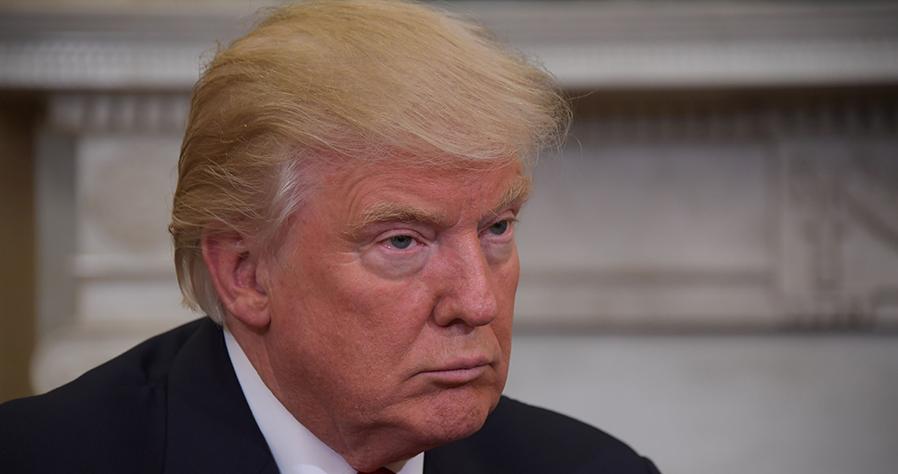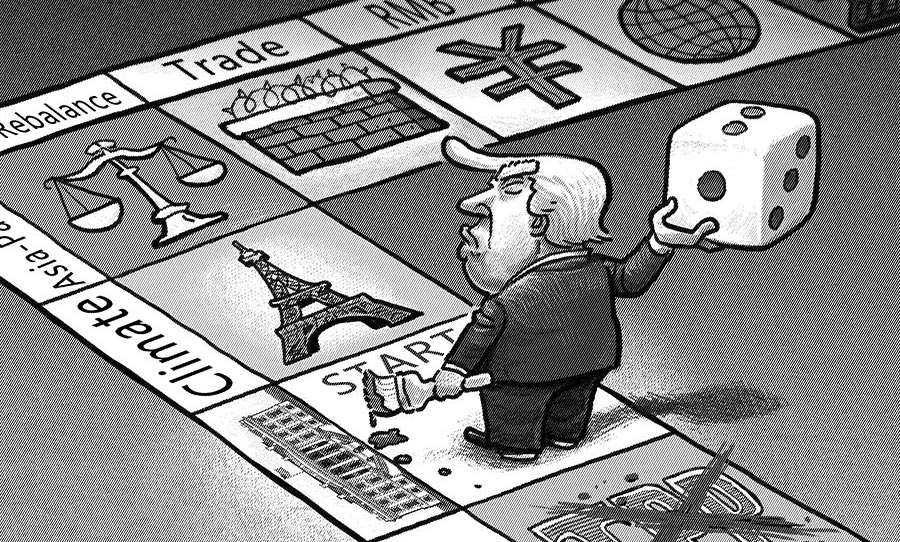
Franz-Stefan Gady, Associate Editor, Diplomat
Dec 15, 2016
President Barack Obama came into office in 2009 with roughly 180,000 Americans fighting insurgencies in Iraq and Afghanistan. The 44th President of the United States was elected to put an end to the long war and reorient U.S. defense policy away towards smaller scale operations and “national building at home.” 8 years later, what will President Barack Obama’s war legacy be?

Wang Yusheng, Executive Director, China Foundation for Int'l Studies
Dec 15, 2016
The world is watching to see how Trump will treat the “Asia-Pacific Rebalancing” strategy, how he will improve US relations with Russia, how he will respond to the friendly messages released by China, how he will readjust relations with allies and whether he will be serious in fighting terrorism and respect the United Nations’ central role.
Doug Bandow, Senior Fellow, Cato Institute
Dec 14, 2016
President-elect Donald Trump’s attack on international trade, and especially his intention to withdraw from the Trans-Pacific Partnership (TPP), will allow the People’s Republic of China to seize the economic lead in Asia and prevent any goal of making America great again.
Sajjad Ashraf, Former Adjunct Professor, National University of Singapore
Dec 14, 2016
President-elect Donald Trump’s announcement that the United States will quit the Trans-Pacific Partnership kills the stillborn deal. For the countries of Southeast Asia who joined this U.S. led pact, it is a moment of reflection over their policy choices, making them seek accommodation with a more certain China rather than a wavering U.S.
Vasilis Trigkas, Visiting Assistant Professor, Schwarzman College, Tsinghua University
Dec 14, 2016
Strategic surprise and a cultivated image of irrationality is a classical strategy in a game of brinkmanship. One side highlights its willingness to “dance too close” to the cliff’s edge and maximize risk, leading its opposition into eventual retreat. Trumps’ discussion with Tsai Ing-wen must be seen through the prism or feigned irrationality. Trump, a studious businessman, may have considered the strategies of past presidents and found the “Madman” hypothesis compelling for his ultimate goal: to leverage Chinese adamancy over core national interests like the Taiwan issue into an agreement over trade and jobs – his existential political pledge.
Wu Zurong, Research Fellow, China Foundation for Int'l Studies
Dec 14, 2016
Despite trade frictions and the recent fuss over contact with Taiwan’s leader, the future Trump administration is likely to promote the smooth development of Sino-U.S. relations in the years to come. Expansion of cooperation in areas where the two countries have common interests would be the first priority of both sides.

Dennis V. Hickey, James F. Morris Endowed Professor of Political Science, Missouri State University
Dec 13, 2016
What does Donald Trump’s victory mean for Sino-American relations? With no experience in government, Trump is unique among all past American presidents. It also means the new president has no political background by which the Chinese can predict his behavior. Trump will come to the White House with a “clean slate” with respect to official “China policy.”

Beth Smits, PhD candidate, Paul H. Nitze School of Advanced International Studies (SAIS), Johns Hopkins University
Dec 13, 2016
As the president-elect makes bold statements and takes symbolic actions relevant to US-Sino relations, perhaps a bit of folklore suggests how to think about wise policy actions.

Yang Jiemian, Senior Fellow and Chairman of SIIS Academic Affairs Council
Dec 13, 2016
The new US leader must truly realize that managing US-China relations in a constructive manner is essential for both countries and the world at large. While Trump plans a dial-back on some US commitments abroad, he cannot change all market rules at will -- and he’s barking up the wrong tree when he attributes most of America’s economic problems to China.
Erin Murphy, Founder and Principal, Inle Advisory Group
Dec 12, 2016
Southeast Asia is unlikely to receive the attention and focus it has under the Obama Administration. Despite this, members of Congress will maintain a focus in the region. Particularly, the legislative will take the lead given the country’s most ardent Myanmar watchers remain in Congress. Regional concerns continue to focus around human rights concerns and radicalization. Although the Obama “pivot” to Asia may be over, a continued relationship will remain.
Back to Top

- China-US Focus builds trust and understanding between the U.S. and China through open dialogue among thought leaders.
- Our Offerings
- Topics
- Videos
- Podcasts
- Columnists
- Research Reports
- Focus Digest
- Stay Connected
-
Thanks for signing up!
- Get the latest stories from China-US Focus weekly.